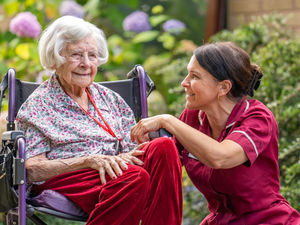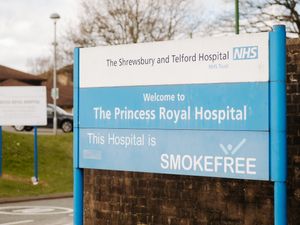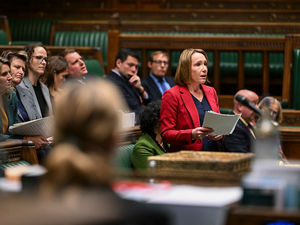Seven recommendations put to county councillors for solving ambulance delay crisis
Councillors are set to hear seven recommendations for reducing ambulance waiting times at hospitals - including reducing the need for people to go to A&E.

A special Task and Finish group was set up by Shropshire Council in the spring to look into the issue that has been linked to more deaths as ambulances become stuck outside hospitals waiting for discharge.
The recommendations include how demand for accident and emergency services can be reduced, to cut down on the need for ambulance calls in the community.
A Prevention, Primary Care, Urgent and Emergency Care, and Discharge Task and Finish Group was set up by councillors after it was decided not to hold an inquiry into the issue.
The recommendations include understanding needs in different communities, the community capacity available to deliver social and health care, and the skills available to close gaps.
They also want to share data with each other including "identifying people with health needs e.g. those who would benefit from advanced care plans, those who would benefit from early intervention, or prevention."
Officers have also recommended having a better understanding of the different reasons for ambulance calls and emergency attendance.
"This would help to identify opportunities to reduce/avoid emergency department (ED) attendance, calls for ambulances and admissions," the report to today's (Monday) Health & Adult Social Care Overview and Scrutiny Committee reads.
They also want to find out why people are going to emergency departments, "to help raise awareness and change behaviours."
They are also due to look at ways to ensure staffing in different health and care roles, including looking at whether there are too many small home care companies to be able to provide quick responses.
The report says: "The task and finish group have taken a view across the services and systems that contribute to preventing and avoiding people needing to be transported to hospital, being admitted to hospital and discharged from hospital.
The task and finish group formed following a resolution at council on May 12 to consider the feasibility of an inquiry into ambulance delays and report findings to Cabinet.
"Having confirmed that an inquiry was not feasible they recommended that the cross-party Task and Finish Group continues with a revised remit to understand the impact of ambulance response times and delays on patient outcomes, taking account of the interdependences across the wider system, working with Health and Adult Social Care Overview and Scrutiny Committee and the Joint Health Overview and Scrutiny Committee.
Members were informed that where patients have been identified for discharge from hospital, but not discharged, the council has to pay for the ‘booked for care’.
On reducing the demand for services they say there are "opportunities to realise reductions in demand for services through prevention of avoidable illness resulting in the need to be admitted to hospital care, and the prevent the need for ambulance conveyance to an ED where a person could be better cared for where they live."
They also say they want to look at a "lack of understanding of the healthcare system and where services are available e.g. people who have moved from other countries may not have experienced primary care, including wider services at GP practices and services available at pharmacies, so attend EDs based on their previous knowledge and experience.
"Covid vaccination experience showed that fewer young adults were registered with a GP practice and therefore could be more likely to attend EDs."
They also are looking at how to avoid older people and those with an "end of life (EoL) plan to hospital, which is via EDs, when they would be better remaining where they live, e.g. following a fall."
They heard that transport arrangements for patients who are being discharged can take some time to be put in place, and that care homes will have a ‘closing time’ for admitting residents.
"As a result, this can mean that a patient identified as ready for discharge may not be discharged if transport cannot get them to the care home by the closing time for resident admission."
In terms of the wider domiciliary care provision in the Shropshire Council area, there are in the region of 89 domiciliary care providers in the area.
The report says: "Members understood that one of the questions that is being considered is whether this is too many for them to be able to operate at scale."
But the report authors warn that the "route into and out of hospital-based services is truly end-to-end with dependences and interdependences across the system, affecting the flow of people and patients and how smoothly and effectively the different moving parts join up and work together.
"Speeding up or slowing down different parts of the system can have unplanned and unwanted impacts."





